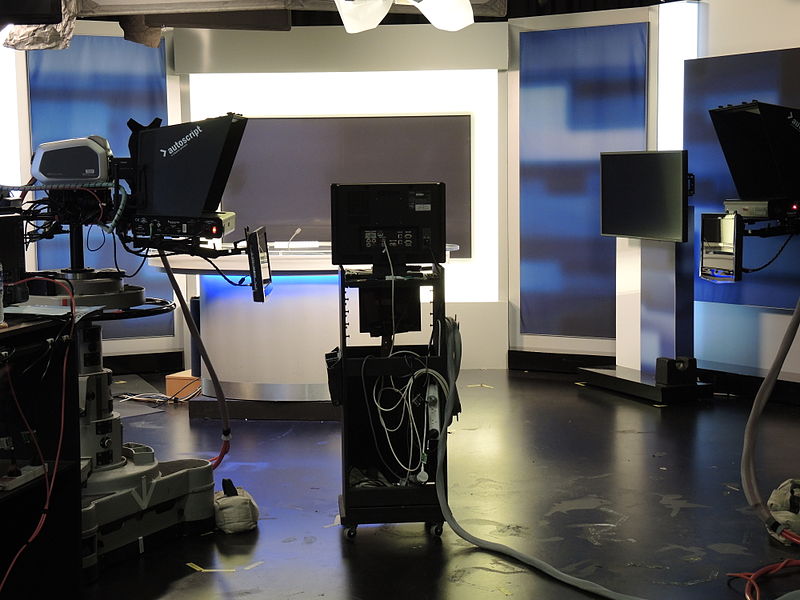Tough times shift Canberra on Oz international broadcasting

Among the many reasons I’m an optimist is the decades I’ve spent inside two strange but wonderful Australian institutions.
One magnificent institution is the Australian Broadcasting Corporation, where I toiled as a journalist for 33 happy years. Most of my time as an ABC hack was in Canberra—in the old parliament, then up the hill to the giant flag and the unique building that has the House of Representatives and Senate on its wings and the executive in the rear.
Only in Oz would the prime minister and all other ministers get to their offices through the back door.
For years I’ve struggled feebly for a punchline about the PM and cabinet residing out the back: rear-mounted engine … the ultimate backseat drivers … how do you see the way ahead from the arse-end of the building?
There must be a metaphor to fit. Please advise.
The ABC and Parliament House are marvellous while also being maddening and mysterious. Maybe that’s how it is with all major institutions, which brings me to my jest about how these two great entities have shaped my optimism.
A while ago, when I wrote a cynical piece on the three unholy rules that govern Canberra, I was tackled on my sunny self-characterisation: ‘If you’re such a congenital optimist, how can you write this dark stuff?’
The answer is simple: I’m an optimist because of decades in the ABC and covering the Oz parliament. And, of course, I’m a dark realist because of decades in the ABC and covering the Oz parliament.
When they’re at the best, both institutions make you rejoice. At their worst, when they mangle their purpose and mislay their principles, the proper response is rage.
For the last couple of years I’ve raged at the ABC and Canberra for the disastrous dismantling of Oz international broadcasting.
Gutting international TV, ending shortwave and exiting the news and journalism contest in the Asia–Pacific is lousy policy and appalling judgement, hugely damaging to Australian foreign policy. I’ve inflicted many columns on The Strategist, testified to one Senate hearing and made submissions to three inquiries. For an overview of the recent dumbness and optimistic prescriptions for a better broadcasting future, see ASPI’s paper Hard news and free media as the sharp edge of Australian soft power.
In the way of Canberra, bad policy is slowly being confronted. The ABC is dimly grasping how much it has abandoned its charter responsibility, enacted by parliament, ‘to transmit to countries outside Australia broadcasting programs of news, current affairs, entertainment and cultural enrichment’.
The ABC is putting its leadership back together after last year losing both its chair and managing director in the same week. The chairman fired the managing director because she wouldn’t bend to his will; then the chair had to go because he was too eager to bend to the government’s will. Sad, bad days for Aunty.
The ABC rebuild has taken a significant step with the appointment of Ita Buttrose as the new chair. At last, the ABC board has a chair who actually knows journalism and media! How novel. And promising.
The main cause for optimism is that both sides of Oz politics have grasped that the destruction of Australia’s international broadcasting voice in the South Pacific and Southeast Asia hurts our foreign policy interests.
The government’s announcement of $17.1 million, over three years, to supply Australian commercial television programs to broadcasters in the South Pacific is a facile and clumsy initiative that doesn’t amount to strategy.
The positive point is that it’s a sign of a government that understands Australia needs to get back into the media game in its region. A strange first step is at least a step. The opposition also embraces an international broadcasting rethink and rebuild.
A new political consensus is forming on international broadcasting, as one element of Canberra’s darkening view of international prospects.
Australia proclaims its first strategic priority now is to manage great-power competition. The Oz step-up in the South Pacific—the Pacific pivot—is the response of a nation that sees its strategic interests in Papua New Guinea and the islands directly challenged by China.
Australia proclaims its enduring fidelity to the alliance as it grapples with the arrival of the post-American world, a multipolar era of shifting power where US military dominance doesn’t translate to other dimensions.
Tough times demand hard thinking and good policy.
Australia is awaking to the costs of absent-mindedly discarding an 80-year tradition of broadcasting to the Asia–Pacific.
My preferred label for this new era is hot peace, not the new cold war. But the cold war elements remind Canberra of a time when international broadcasting was a vital instrument of state policy. Look around today and note China’s arrival as a major international media player, the big Russian effort, and how Britain is boosting the BBC World Service.
In an era of power completion and contest over the nature of the international system, Australia must again power up its voice to serve its interests, influence and values.


